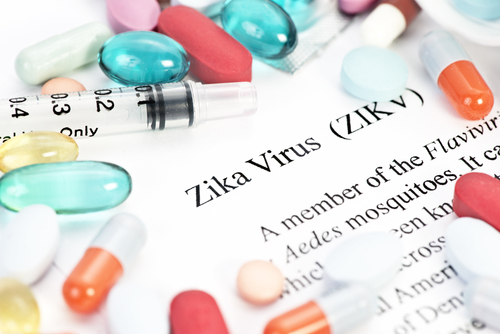Hepatitis C drug could be effective against Zika virus
IANS Jan 27, 2018
Researchers have found that a drug used to treat Hepatitis C may work effectively as a potential treatment for Zika-infected adults, including pregnant women.

The findings suggested that the repurposed drug effectively protected and rescued neural cells infected by the Zika virus and blocked transmission of the virus to mouse foetuses. "There has been a lot of work done in the past year or so to address the Zika health threat," said co-author of the study, Alysson Muotri, professor at the University of California San Diego School of Medicine departments of Pediatrics and Cellular. "But there is also a great need to develop clinical strategies to treat Zika-infected individuals, including pregnant women for whom prevention of infection is no longer an option."
The researcher also warned that pregnant women represent the greatest health crisis because a Zika infection during the first trimester confers the greatest risk of congenital microcephaly. For the study, published in the journal Scientific Reports, the team investigated an antiviral drug called sofosbuvir -- approved and marketed under the brand name Sovaldi -- to treat and cure Hepatitis C infections. The drug works by inhibiting replication of the Hepatitis C virus.
Researchers noted that both Hepatitis C and Zika belong to the same viral family and bore strong structural similarities that could make sofosbuvir effective against the latter. In addition, it had been reported that sofosbuvir was protective against Zika in different cell types, the researchers said.
In tests using human neural progenitor cells (NPCs) -- self-renewing, multipotent cells that generate neurons and other brain cell types -- the researchers found that exposure to sofosbuvir not only rescued dying NPCs infected with the Zika virus, but restored gene expression linked to their antiviral response.
In subsequent tests using an immunodeficient mouse model infected by Zika, intravenous injections of sofosbuvir significantly reduced viral loads in blood serum compared to a placebo group. Moreover, foetuses of Zika-infected pregnant mice did not show detectable Zika virus amplification in the sofosbuvir-treated group.
-
Exclusive Write-ups & Webinars by KOLs
-
Daily Quiz by specialty
-
Paid Market Research Surveys
-
Case discussions, News & Journals' summaries